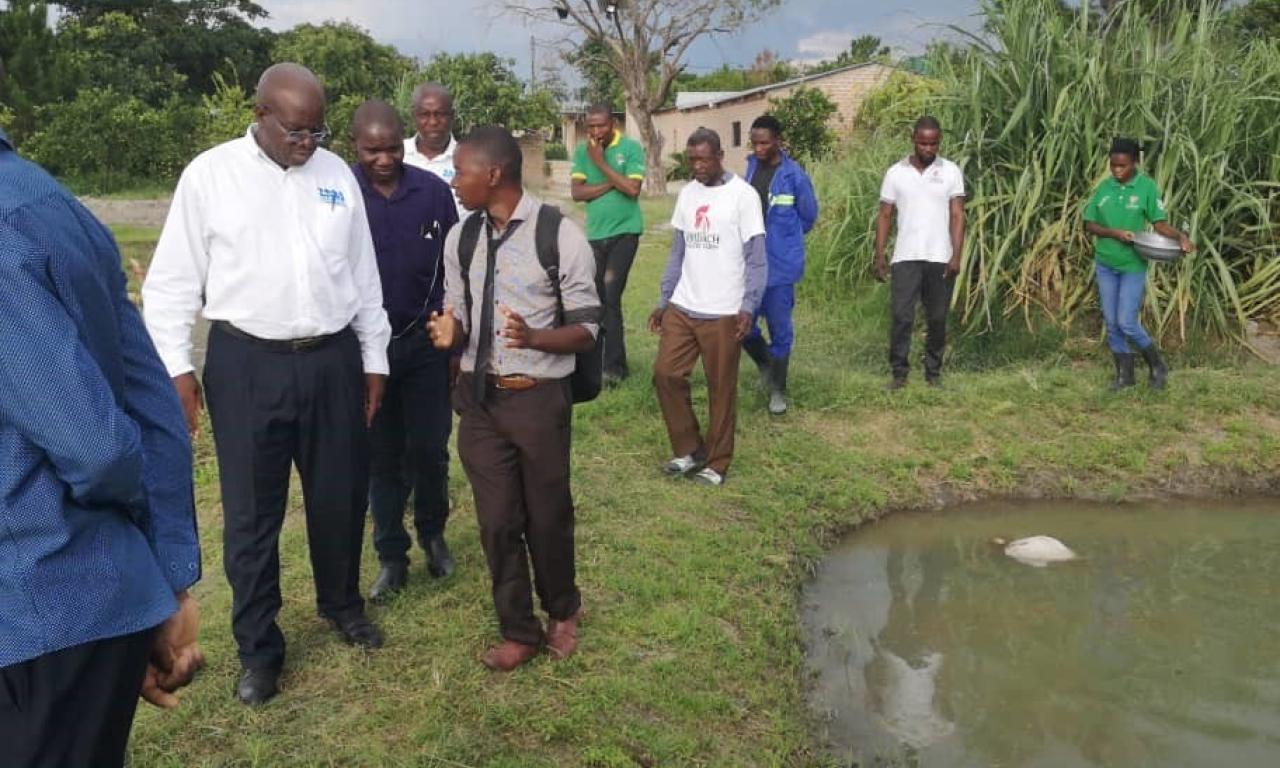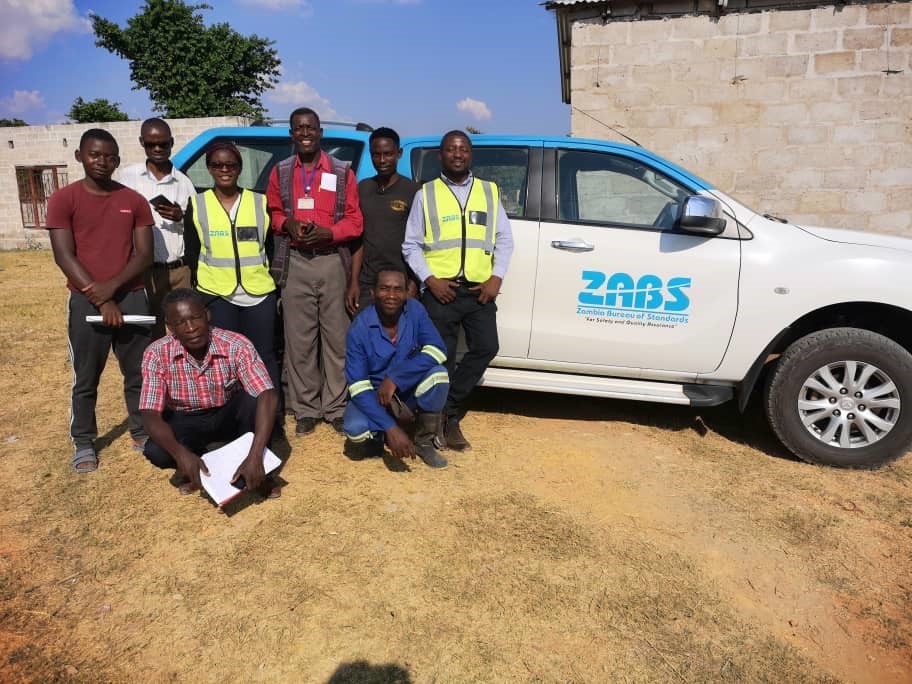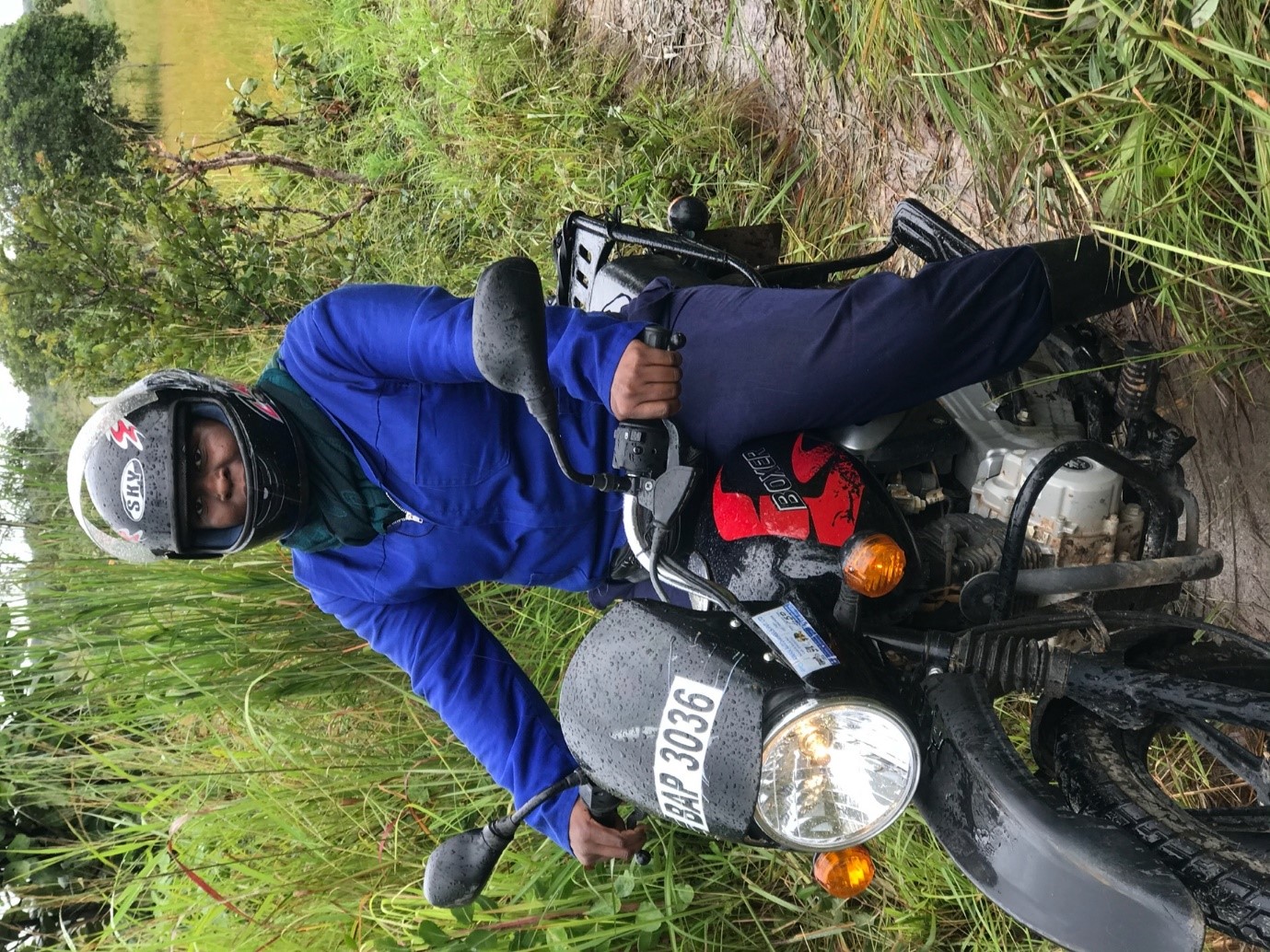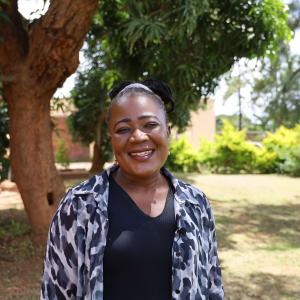
Aquaculture internship programs help youth to gain experience and fill in industry gaps for win-win benefits.
With about forty percent of the water in southern Africa, landlocked Zambia is poised to become the region’s aquatic food basket. Small-scale fisheries, primarily in lakes and rivers, and aquaculture provide the bulk of the country’s domestic fish supply, producing approximately 85,000 and 35,000 metric tons of fish respectively.
The Zambian government recognizes fish and other aquatic foods as a critical resource for public health, nutrition and human well-being and plans to increase per capita fish consumption from 7kg to 20kg in the next nine years. This decision is expected to increase the country’s fish deficit unless measures are taken to boost production; Zambia currently imports over 40,000 metric tons of fish to fill supply-demand gaps as the country's appetite for fish grows.
In order to transform the country from a net fish importer to a major fish exporter, the Zambian government has mobilized resources to address several barriers to aquaculture development. Fish and aquatic food farming has been identified as a solution to the country’s fish deficit and can complement existing capture fisheries, while reducing dependency on costly imports.
Access to information and training, through extension services support, is increasingly a critical leverage point for aquaculture development. Historically extension services were considered a public good, but the capacity of the public sector to provide this service has been reduced due to dwindling funds. Smallholder aquaculture farmers also tend to be thinly spread over large areas, thereby increasing cost of extension services delivery, and extension service officers in the public sector have limited access to reliable transport.
To increase the accessibility of extension services and realize the sector’s future potential, WorldFish, in partnership with Musika Development Initiatives, implemented an internship program under Aquaculture Technical, Vocational and Entrepreneurship Training for Improved Private Sector and Smallholder Skills Project (AQ TEVET) in the Northern and Luapula provinces of Zambia. The project builds the capacity of small to medium-sized business enterprises (SMEs) to act as intermediaries between fish farmers and market services.
Interns were linked to the AQ-TEVET project to fill gaps in extension services delivery; the project simultaneously sought to help young people acquire practical skills in aquaculture management and gain the confidence to meaningfully shape the sector’s future.
Owing to the large number of fish farmers and producers sparsely spread across the countryside, the project attached interns to four SMEs: Kasakalabwe Multipurpose Cooperative which produces catfish fingerlings; Hopeways Farms and General Dealers who are producers of tilapia fingerlings; Triple Blessings which distributes commercial fish feed; and Zhonkghai International, a cassava processor working with WorldFish and Musika to experiment on the use of distillers grains as potential fish feed.
Youth build better business outcomes

The interns were selected from various tertiary learning institutions, with the Natural Resources Development College providing the majority. The internship ran for six months from July to December 2020.
During this period, the interns supported the SMEs with day-to-day management of their aquaculture facilities and provided extension services to the registered fish farmers. The project also provided the interns with motorbikes to ease transport challenges, allowing them to reach rural farmers.
The Director of Hopeways Farms, Wilbroad Musanshi, was appreciative of the work performed by intern Thandiwe Foroma and the youthful perspective she brought into fish pond design.
“We are very grateful that through her hard work and commitment, Thandiwe has helped to boost our business, and now we can produce more quality fingerlings and serve our famers better. She has also contributed to having more farmers join our cooperatives, and she has been influential in redesigning fish ponds for the farmers,” said Musanshi when the delegation from WorldFish and Musika recently toured his farm.
All the SMEs requested WorldFish and Musika to consider redeploying the same interns to their facilities and renewing the program.
“We are very happy that you accorded us the opportunity to work with Francis Banda, who was very influential in capacity building support for the cooperative. With him, we could reach farmers as far as 200Km away from our farm. I would like to appeal to the project to please bring Francis back,” said Kasakalabwe Director Felix Mulenga.
“As an intern, I was able to apply my knowledge practically, nurture my leadership skills and develop interpersonal skills that enable me to interact with people of various backgrounds,” said Banda.
During his internship, Banda helped Kasakalabwe Cooperative to produce sex-reversed tilapia fingerlings and worked to have the facility certified by Zambia Bureau of Standards. The cooperative is now able to supply fingerlings to farmers who have received financial support from the Citizens Economic Empowerment Commission.
Though still in its early stages, the internship program is promising to be a step in the right direction in addressing some of the bottlenecks surrounding extension services delivery in the aquaculture industry while boosting employment.
Interns’ new skills and knowledge can also be applied to their future fish farming endeavors. The experience will prepare the students to forge sustainable, youth-led aquaculture businesses that will generate tangible impacts on the future economy and food security.

Acknowledgements
This is an initiative of WorldFish in partnership with Musika. This work was undertaken as part of the CGIAR Research Program on Fish Agri-Food Systems (FISH) led by WorldFish. Funding support for this work was provided by the Norwegian Agency for Development Cooperation (Norad) in the framework of the Aquaculture Technical, Vocational, and Entrepreneurship Training for Improved Private Sector and Smallholder Skills Project in Zambia.

